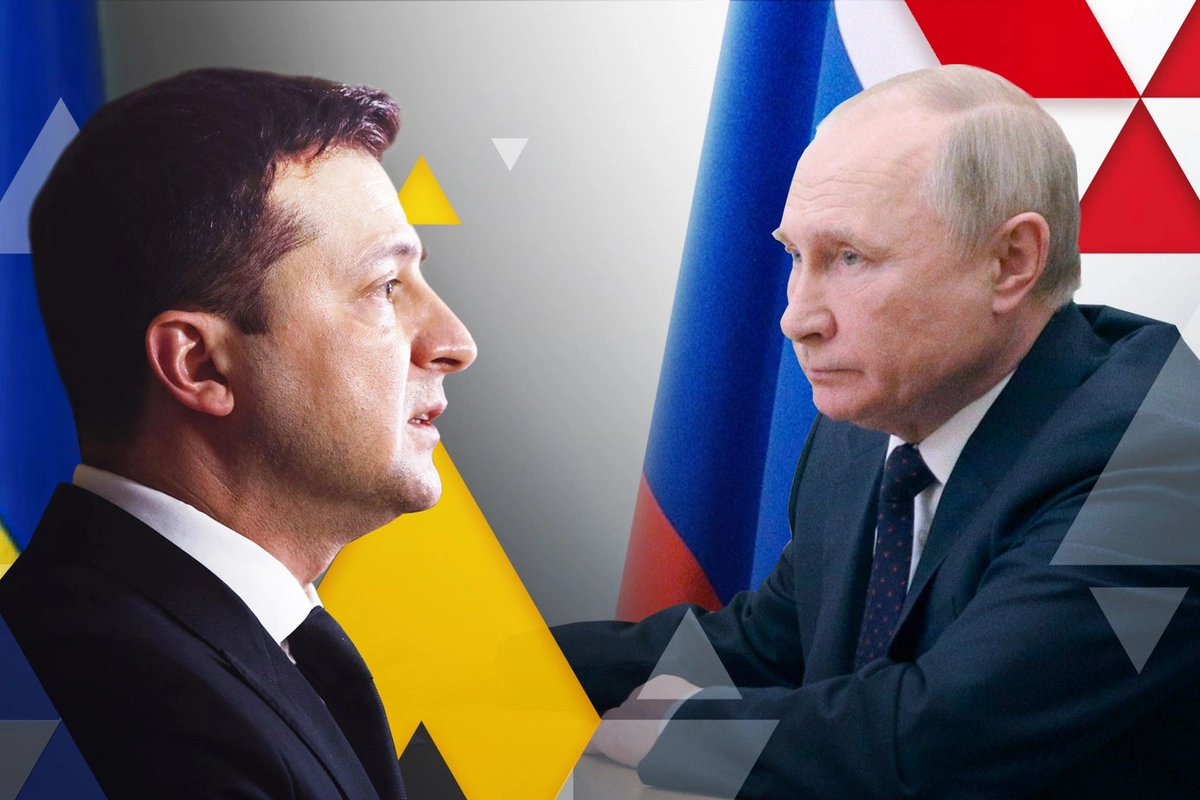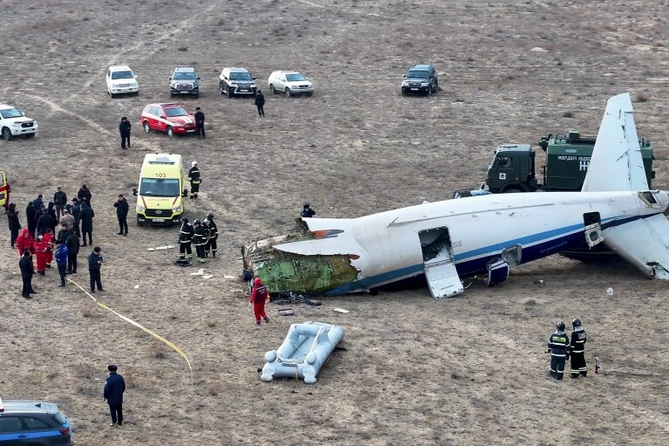
Photo: news.sky.com
By Tural Heybatov
In recent days, Azerbaijan has become a focal point of diplomatic activity, showcasing the importance of political maneuvering on the global stage. Following a call from Russian President Vladimir Putin to Azerbaijani President Ilham Aliyev, Ukrainian President Volodymyr Zelensky quickly followed suit with a call of his own. This sequence of events has drawn the attention of experts intrigued by Kyiv’s actions. The timing of the call from Kyiv, coming immediately after Moscow’s, adds to the intrigue.
Azerbaijan's Sensitivity to Geopolitical Shifts
Azerbaijan is known for its acute awareness of regional and global geopolitical dynamics, consistently asserting its agency in international affairs. This was evident recently in the context of the AZAL plane crash. Azerbaijan’s position and actions have drawn significant attention, placing the nation at the center of a diplomatic whirlwind. The two calls on Friday from opposite poles are testament to this. However, the real intrigue lies not in the calls themselves but in the contrasting approaches of Russia and Ukraine in expressing condolences.
Contrasting Condolences from Moscow and Kyiv
The tragedy in Azerbaijan prompted a wave of condolences from neighboring countries, both near and far. Leaders from Turkey, Iran, and others expressed their sympathy at the highest levels, emphasizing solidarity and the importance of maintaining friendly relations.
Ukraine, however, adopted a different approach. Its foreign minister issued a brief statement on social media, which many perceived as disrespectful to Azerbaijan and the victims of the tragedy. This lack of diplomatic tact sparked outrage, particularly when compared to the genuine concern and empathy demonstrated by other nations.
Instead of expressing sincere condolences, Ukrainian media began disseminating materials seemingly aimed at straining Azerbaijan-Russia relations. Observers believe this was a calculated effort to weaken Moscow’s regional influence and redirect Azerbaijan’s support toward Ukraine. These attempts, however, appear misaligned, especially given the considerable, though understated, support Azerbaijan has already extended to Ukraine.
Putin’s Call: Diplomacy in Action
Putin’s call to Baku was symbolic. Moscow’s prolonged silence had raised eyebrows, given the close ties between the two countries and their leaders. Russia-Azerbaijan relations are balanced and vital, encompassing economic, cultural, and political dimensions. Moscow’s silence was unsettling, particularly to friends of Azerbaijan in Russia, as it threatened to strain bilateral ties.
The call broke this silence, with Putin offering apologies for the plane incident in Russian airspace and acknowledging Moscow’s responsibility. This transparent and conciliatory gesture eased tensions between the two nations and their people.
The nature of Putin’s apology and condolences underscored Moscow’s commitment to maintaining strong ties with Baku. This call is likely to strengthen strategic cooperation amidst external pressures, signaling Russia’s recognition of Azerbaijan as a key regional player crucial to energy security and political stability.

AP Photo
Zelensky’s Call: A Bid to Shift Dynamics
Zelensky’s call, following Putin’s, provided analysts with much to ponder. Many see it as an attempt by Ukraine to mitigate the negative impression left by its earlier approach and to demonstrate interest in strengthening ties with Azerbaijan. Zelensky’s initial silence had drawn criticism in Azerbaijan, particularly given Ukraine’s indirect involvement in the incident, as Russian air defenses targeted Ukrainian drones.
Experts suggest this call is part of Kyiv’s broader strategy to attract new allies and diminish Moscow’s influence. However, such moves often come across as insincere, especially when preceded by undiplomatic behavior.
Lessons for Ukraine
This episode highlights the importance of proper diplomatic conduct. Azerbaijan values respect and sincerity in its relationships. Attempts to exert informational pressure or make provocative statements often backfire, fostering mistrust.
For Ukraine, this situation should serve as a lesson: lasting relationships are built on authenticity and respect, not short-term maneuvers. Azerbaijan continues to assert its independence and strengthen its position as a key international actor, setting an example of balanced and autonomous policymaking.
Diplomatic Calls as a Double-Edged Sword
The calls from Putin and Zelensky to Aliyev demonstrate how diplomacy can both strengthen relations and create tension. Russia has reinforced its ties with Azerbaijan through respect and traditional channels, while Ukraine’s efforts have struggled to achieve the same impact due to a less effective approach.
As a bridge between East and West, Azerbaijan remains steadfast in pursuing its national interests, exemplifying a model of measured and independent diplomacy.
Share on social media